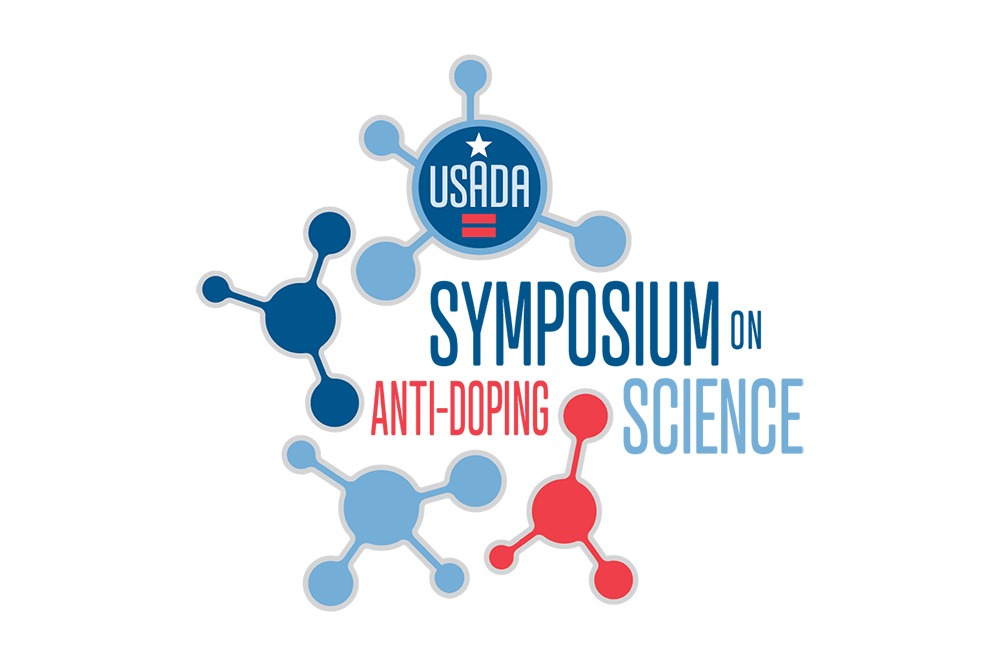 Have you ever questioned the legitimacy of an athlete’s achievement? Joined by the world’s top experts, the U.S. Anti-Doping Agency (USADA) hosted the 21st Annual USADA Symposium on Anti-Doping Science to explore how we can better differentiate between truly extraordinary achievements and those aided by doping.
Have you ever questioned the legitimacy of an athlete’s achievement? Joined by the world’s top experts, the U.S. Anti-Doping Agency (USADA) hosted the 21st Annual USADA Symposium on Anti-Doping Science to explore how we can better differentiate between truly extraordinary achievements and those aided by doping.
Entering its third decade, the Symposium ensures the continued development of innovative, scientifically-led solutions to protect clean athletes and the integrity of sport. The following stakeholders were represented this year among the 92 registered participants hailing from six continents and more than 35 countries:
- 20 WADA-accredited laboratories including: German Sport University Cologne, Laboratoire Anti Dopage Français, Norwegian Doping Control Laboratory, Sports Medicine Research and Testing Laboratory (SMRTL), University of California, Los Angeles (UCLA), and the University of Lausanne
- National Anti-Doping Agencies including: Australia, Austria, Barbados, Czech Republic, Denmark, Germany, Iceland, Japan, Korea, Netherlands, New Zealand, Norway, Poland, Sweden, and the U.K.
- Ultimate Fighting Championship
- Major League Baseball
- National Football League
- Partnership for Clean Competition
- United States Army Research Institute of Environmental Medicine
- United States Olympic & Paralympic Committee
- World Anti-Doping Agency (WADA)
- International Paralympic Committee
- International Testing Agency
Over the course of the Symposium, experts from a wide range of backgrounds discussed key topics within the theme “The Elite Athlete: Differentiating Extraordinarily Normal from Abnormally Extraordinary.” Elite athletes have long been celebrated for their extraordinary ability to push the boundaries of human performance, both physically and mentally, in training and competition and often in extreme and challenging environments. The sub-four-minute mile, the Mt. Everest ascent without oxygen, the sub-10 second 100m, the marathon champion tennis matches – the examples of extraordinary human athletic feats in sport are endless. But in today’s sport world, it is easy for some to be conflicted about whether to celebrate or question such feats.
“To better detect doping across diverse athletes and sports, we need to increase our understanding of what is normal and abnormal across the many facets of human performance,” said Dr. Matthew Fedoruk, USADA’s Chief Science Officer. “This year, we focused on how to better identify and scrutinize the expected from the unexpected by looking at factors ranging from genes to drugs to extreme environments.”
At the Symposium, panelists and participants discussed a wide range of topics, including the following:
- Michael Joyner from the Mayo Clinic provided the keynote address, which focused on the 1:50 marathon and the technology, doping, and/or dystopia at play.
- Geoff Burns from the USOPC Medicine division spoke to the challenge of determining “normalcy” in Paralympic athletes.
- Mario Thevis from German Sport University Cologne provided examples of strategies and obstacles in current sports drug testing programs when it comes to differentiating drug use, misuse, and ‘normal’ environmental exposure.
- Rachel Frank from the University of Colorado School of Medicine covered the rapidly evolving area of new biologic therapies in sports medicine.
- Stefan Pasiakos from the U.S. Army Research Institute of Environmental Medicine explored the efficacy of testosterone replacement for warfighters operating in extreme environments, contributing to ongoing conversations about the safety and integrity of service members.
Award for Excellence in Anti-Doping Science
The Symposium also provides the opportunity to recognize and award the achievements of scientists who have made an impact on anti-doping approaches and best practices. USADA was pleased to present the 6th Larry D. Bowers Award for Excellence in Anti-Doping Science to Dr. Jordi Segura for his distinguished 37-year career in the anti-doping industry, including 30 years as the director of the Barcelona WADA-accredited anti-doping laboratory. During his nearly four decades of services, he has authored more than 380 peer-reviewed scientific publications related to the chemical and biological determination of drugs, medicines, and their metabolites in biological fluids, as well as several complementary areas. In addition to other responsibilities, he currently serves as vice-chair of both the FINA Aquatics Integrity Unit Anti-Doping Advisory Panel and the International Working Group on Dried Blood Spot Analysis and Storage.
About the Symposium
The USADA Symposium on Anti-Doping Science has a long tradition of bringing together external experts, anti-doping laboratories, and scientific and medical experts from anti-doping organizations to discuss timely and relevant scientific doping challenges facing sport. The goal of the Symposium is to enrich the scientific expertise within the global anti-doping community, identify where the challenges lie, and develop ideas and solutions that can be built upon after the Symposium to advance anti-doping science that helps protect clean athletes and maximizes both detection and deterrence strategies. The USADA Symposium began in 2002 and has been held in a variety of cities within the United States and internationally annually. Next year’s Symposium will head to Paris, France co-hosted with the AFLD (French Anti-Doping Agency) to coincide with the 2024 Olympic and Paralympic Games.
For more information or media inquiries, click here.



